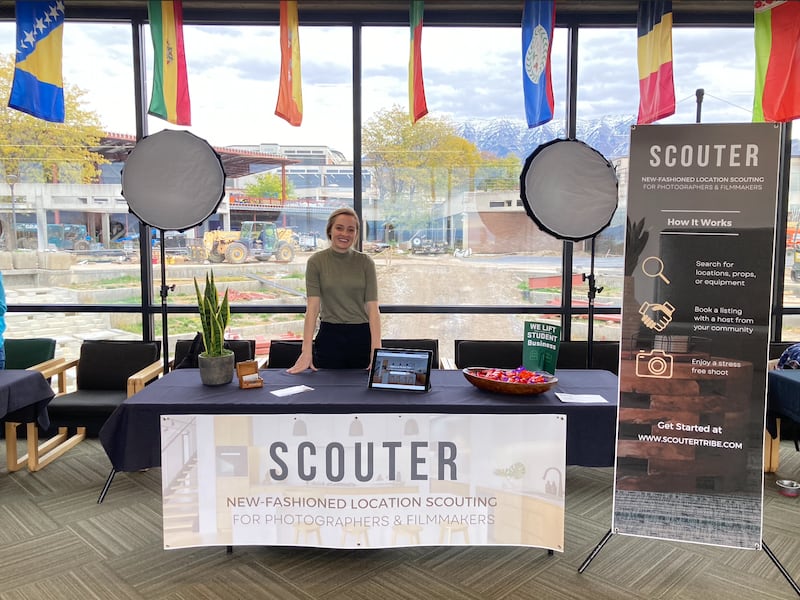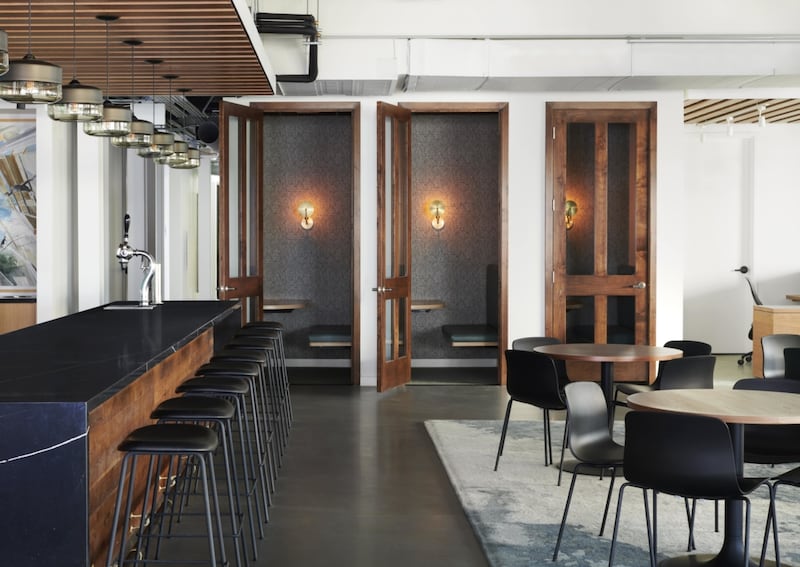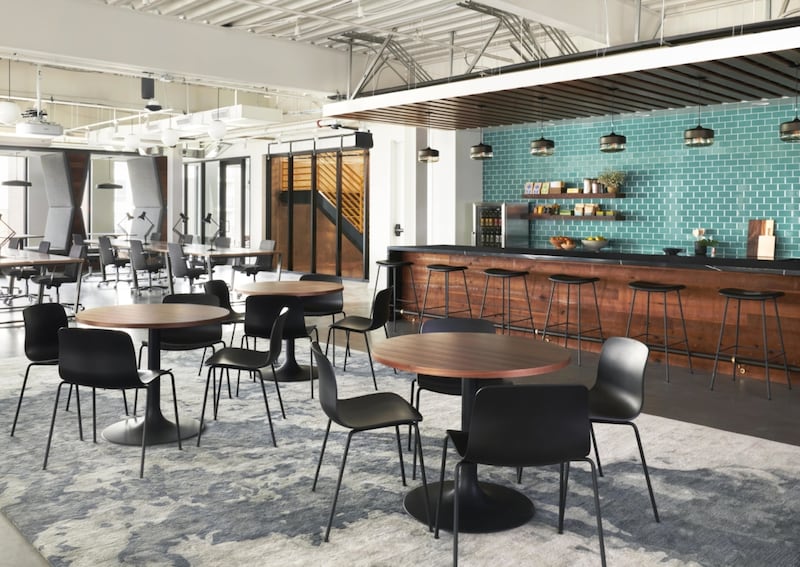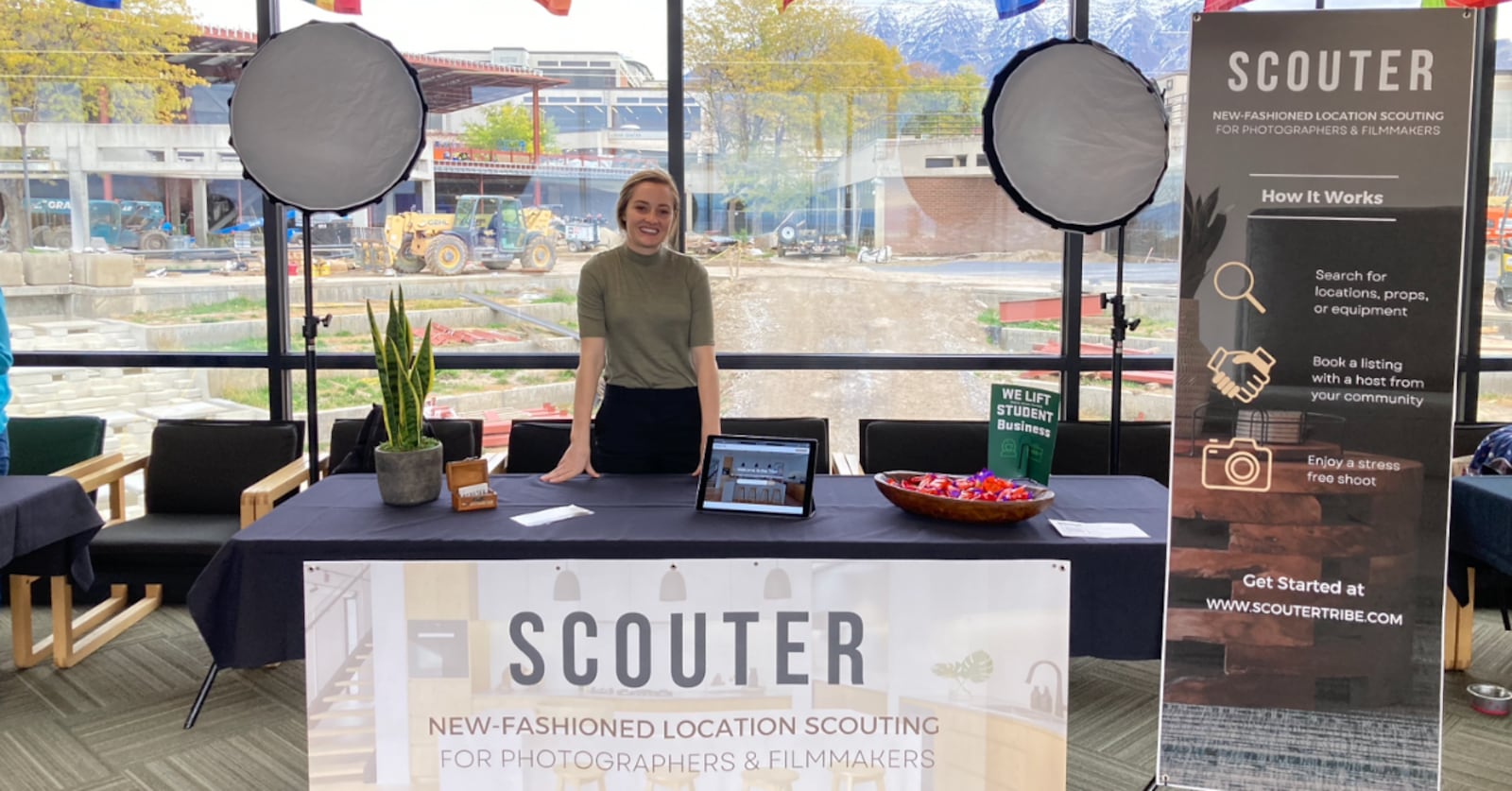Looking for a side hustle? Forget dog walking or food delivery—if you have an empty conference room, creepy basement or even a cozy corner, these Utah companies want to monetize them.

Scouter bridges the gap between business owners and photographers looking for locations.
The founders, Emily and Landon Newton, are seasoned creatives who developed their company based on the needs of their community.
“Anyone involved in photo or film knows what a horrible and consistent headache location scouting is,” Landon Newton says. “Until Scouter, we were literally going door to door, asking to see people’s bathrooms or backyards.” Now, creatives can browse hundreds of locations in seconds.
Scouter allows anyone to list their location for free—no money is exchanged until someone books your location. Then, the Newtons take 15 percent.
Once the site went live, Landon Newton says it took a week for reservations to pour in.
“People don’t think about how much content is made every day,” Landon Newton says. “Influencers and YouTubers post all the time—sometimes multiple videos a day, and all of it needs to be shot somewhere. This is ongoing throughout the year.”
That’s the beauty of Scouter, the Newtons say. Unlike most side hustles, this work is consistent.
There’s demand for your office space
“We have so much demand from the creative side that we’re doing whatever we can to get businesses’ attention,” Landon Newton says. While the majority of locations on the site are in Utah, the Newtons say they have locations around the world.
It’s not difficult to identify businesses and homeowners who have a property worth listing, Emily Newton says—it’s convincing them that they do.“It’s assumed that you need to have a big mansion or a huge office building, something flashy and modern, to have value,” she says. “But how many films have you seen where they need a trailer home? A shed? An empty warehouse?”

The couple says that even the spooky grove of trees in your backyard has value—and they’re not talking a few dollars, either.
“An average home can make between $50 and 300 an hour,” Landon Newton says. “For small businesses, it ranges between $500 and $5,000 a day. Larger businesses can make double or triple that.”
The couple says the biggest demands are for larger businesses: restaurants, grocery stores and concert venues.
“These places are often put off because they have specific operating times and don’t want to close during those periods,” Emily Newton says. “But that’s another disconnect between locations and the creatives we’ve seen. Filmmakers are used to doing midnight shoots, early morning or any odd hour. The film crew can come in any time you’re not open, meaning you’re making this money without losing any traditional customers in the process.”
Even companies need a side hustle
Stanza, a company based in southern Utah, also wants to know about your office spaces—but rather than one-off appointments, they’re looking to fill them long-term. Stanza is a marketplace that connects workers with flexible workspaces, the “Airbnb of office space.”
“It’s a whole new tier of economics that we’re unlocking,” says Matt Riley, Stanza’s founder.
Riley says Stanza unlocks a category of inventory that’s traditionally been hidden from users.
“Our hosts are existing companies that have a room, maybe a couple of rooms, that are empty,” he says. “It’s often a small enough chunk of the office to where it wouldn’t make sense to sublease the space but still could and should be put to use somehow.”
Stanza came about in response to the early days of the pandemic. Much of the world shifted to remote work, leaving office buildings barren. Now, with remote, hybrid and full in-office models competing for the spotlight, Riley says Stanza can bridge the gaps.“The vast majority of our customers are looking for dedicated spaces to rent out month to month,” he says. “There are times of year—like summertime or spring break, for example—when we see a spike in smaller spaces just for that season, but in general, we see long-term commitments. Some folks are looking to get in the space and be there forever."
Startups were the first group of early adopters that Stanza targeted.
“The way these existing companies price their spaces are often more emotionally driven than by square footage,” Riley says. “While that might seem counterproductive, it happens to line up nicely with the needs of startups.”
Pressured to be efficient with their funding, startups usually need affordable, flexible spaces.
“Stanza is uniquely positioned to relieve the pain points that startups have: the length of time of an agreement and the cost,” he says.
Once you have the startups on your side, Riley says the rest falls into place.
“Startups are a magnet,” he says. “They’re cool, and people like to be lumped into the same category—something dynamic, exciting, innovative.”
As more startups became Stanza users, Riley says the company saw more remote teams booking similar spaces.
“Clustering is happening a lot,” he says. “These remote groups are getting and growing together through Stanza.”
But no matter who is in the space or how long they’re there, Riley stands by a simple philosophy: “An empty building benefits no one.”
It seems the public approves. “We’ve grown to over 200 listings throughout all of Utah,” Riley says.
That number is set to increase exponentially through 2024; Stanza just entered into a contract with a global brokerage firm that will take their marketplace across the country.
“In the last couple of weeks, we’ve opened up Brooklyn, New York; Washington, D.C.; Philadelphia, Pennsylvania; Nashville, Tennessee; Chicago, Illinois; and Seattle, Washington to users,” he says.
In every location and at all kinds of office buildings, Riley says the office space ecosystem agrees on one thing.
“Amidst all the turmoil, … flex space is thriving,” he says. “Coworking providers are flourishing, and we’re going to be part of that double-digit growth.”
Finding space for everyone with office space side hustles
While Scouter and Stanza are disrupting their markets, both have made an effort not to step on anyone’s toes while playing middleman.
“We’ve become full-time location scouts so other creatives don’t have to,” Emily Newton says. “What has been an expensive and consistent headache has now become something that benefits creatives, individuals and business owners. We’re very involved in the creative industry and community, so we’ve been careful to deliver exactly what was needed.”
For Riley, there are a few more obstacles. Technically, Stanza can effectively help people looking for space and business owners skip over brokers, agents and property managers. But Riley doesn’t want to abandon tradition entirely.
“We’re committed to adding value for everyone in commercial real estate,” says Riley. “We actively avoid any motions that would create friction within our relationships. Instead, we have a philosophy of partnering and adding value to everyone involved in owning and maintaining a building, whether through easing lending complexity, cash flow or just populating the space.”
Regardless of what kind of space you have or what sort of commitment you’re looking for, Scouter and Stanza exist to help you earn side income.
“Through companies like ours,” Landon Newton says, “You’re able to not only run your normal business, … but also see pretty sizeable amounts on the side, all without any big life changes. We’ve been amazed by the amount of opportunities.”


